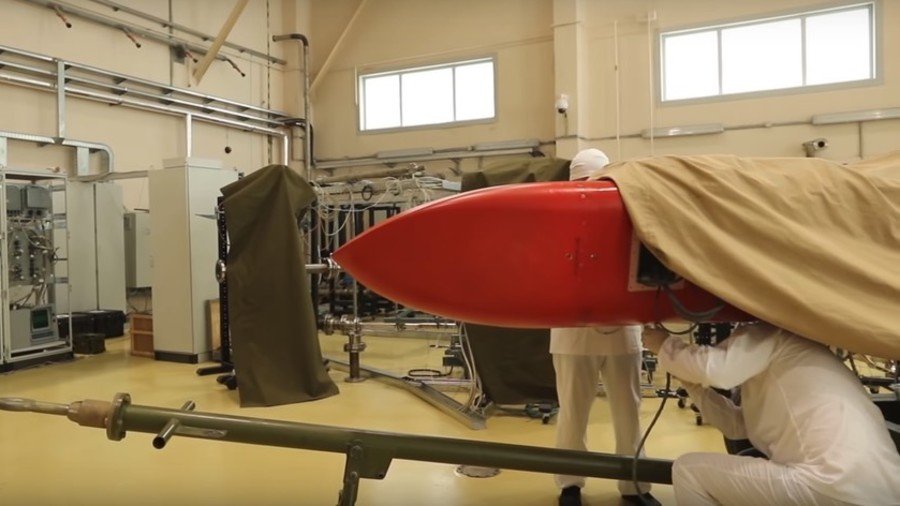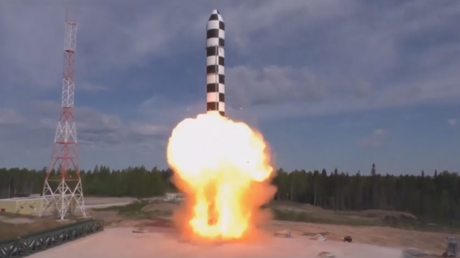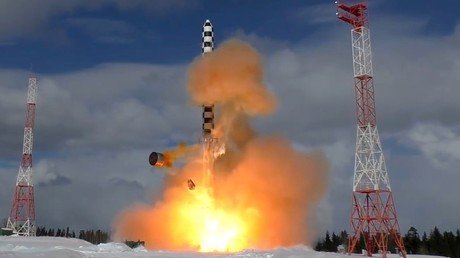Russian hypersonic weapon files leaked to West, intel agents seek mole – report

Dozens of employees in the Russian missile industry came under intense scrutiny after the FSB reportedly conducted an all-out search for a mole who leaked top secret files on the newest hypersonic weapons to Western intelligence.
The FSB, Russia’s domestic intelligence agency, believes classified information on top-notch hypersonic projectiles was leaked out of two major research and development centers based in and outside of Moscow. Citing its own intelligence sources, Kommersant newspaper broke the news that an employee with top secret clearance allegedly leaked the data.
Early Friday morning, FSB operatives searched the quarters of TSNIIMASH (the Central Research Institute of Machine Building) and the United Rocket and Space Corporation (URSC), both part of Russian Space Agency Roscosmos, which was involved in the development of hypersonic projects.
The newspaper reported that all of this comes as part of a recent investigation into the leaking of secret files to foreign intelligence services.
The FSB specifically targeted the head of the URSC’s research facility, Dmitry Paison, and conducted a separate search in his office.
A source familiar with the FSB investigation told Kommersant that “it was established that the leak came from TSNIIMASH employees who were in touch with Paison.” He described the inquiry as “unprecedented,” saying one should not expect the agency to be soft on the perpetrator.
“Many heads will roll, it won’t be limited to people being dismissed,” the source said. Later in the day, a Roscosmos spokesman confirmed that FSB searches took place. He added that Dmitry Rogozin, the head of the corporation, directed “our security division to offer maximum support to the investigation.”
Russian hypersonic weapons first came to light after President Vladimir Putin unveiled the futuristic systems during a speech in March. The missiles, some of which are already in service, are said to give Russia an unrivaled deterrent in the future. One was the hypersonic air-launched Kinzhal (dagger) missile, which is able to travel 10 times faster than the speed of sound.
Another is the Avangard (vanguard) hypersonic glider, which is still being tested by the military, while the infrastructure – presumably underground silos – is being tweaked to accommodate the device.
The Russian Defense Ministry released footage of both the Kinzhal and the Avangard. While the latter has only recently entered production, the Kinzhal has been launched numerous times by an air force squadron that has flown over 350 missions involving the missile.
Reports on Russian hypersonic weapons began appearing in the Western media earlier this year. In May, CNBC quoted a source aware of US intelligence reports that claimed the Russian military successfully tested hypersonic weapons twice in 2016. The news piece claimed the third known test of the weapon was carried out in October 2017, but allegedly failed when the device crashed seconds before hitting its target.
In July, CNBC rolled out a similar story, citing an intelligence source again and saying “a Russian missile the US is currently unable to defend against will likely be ready for combat as early as 2020.”
Like this story? Share it with a friend!
















